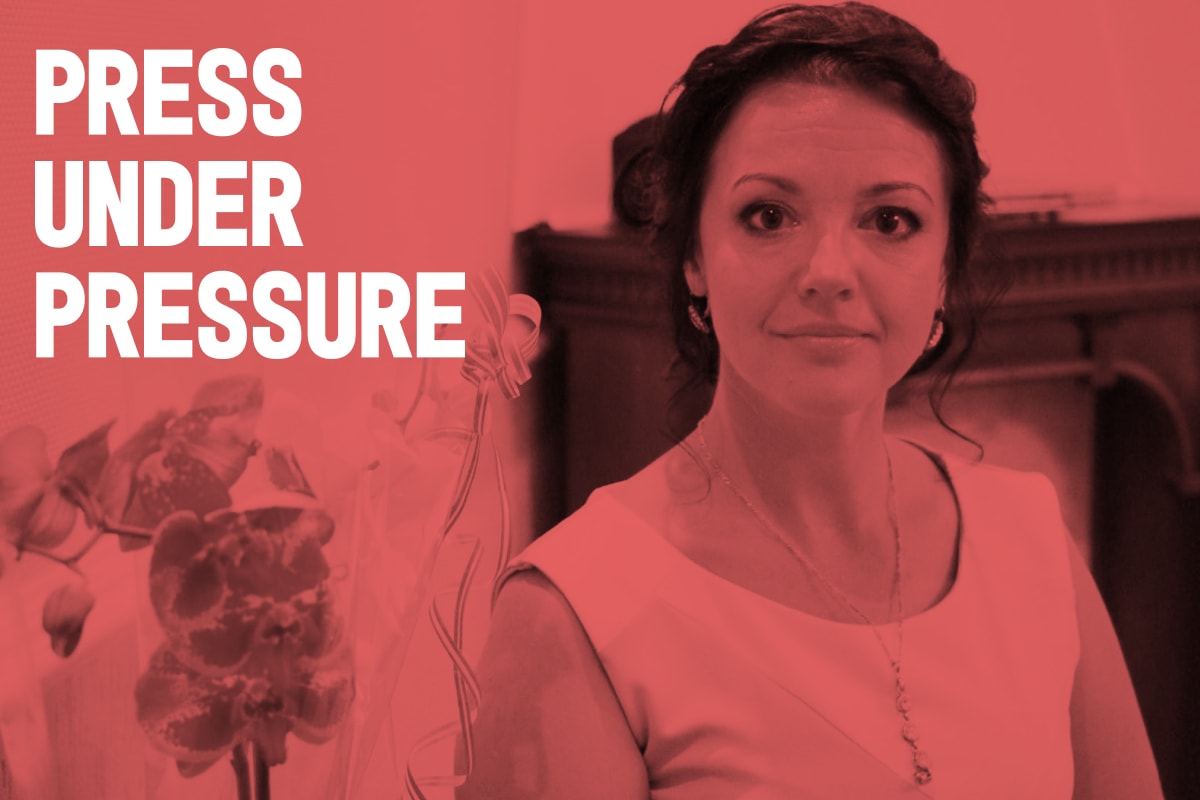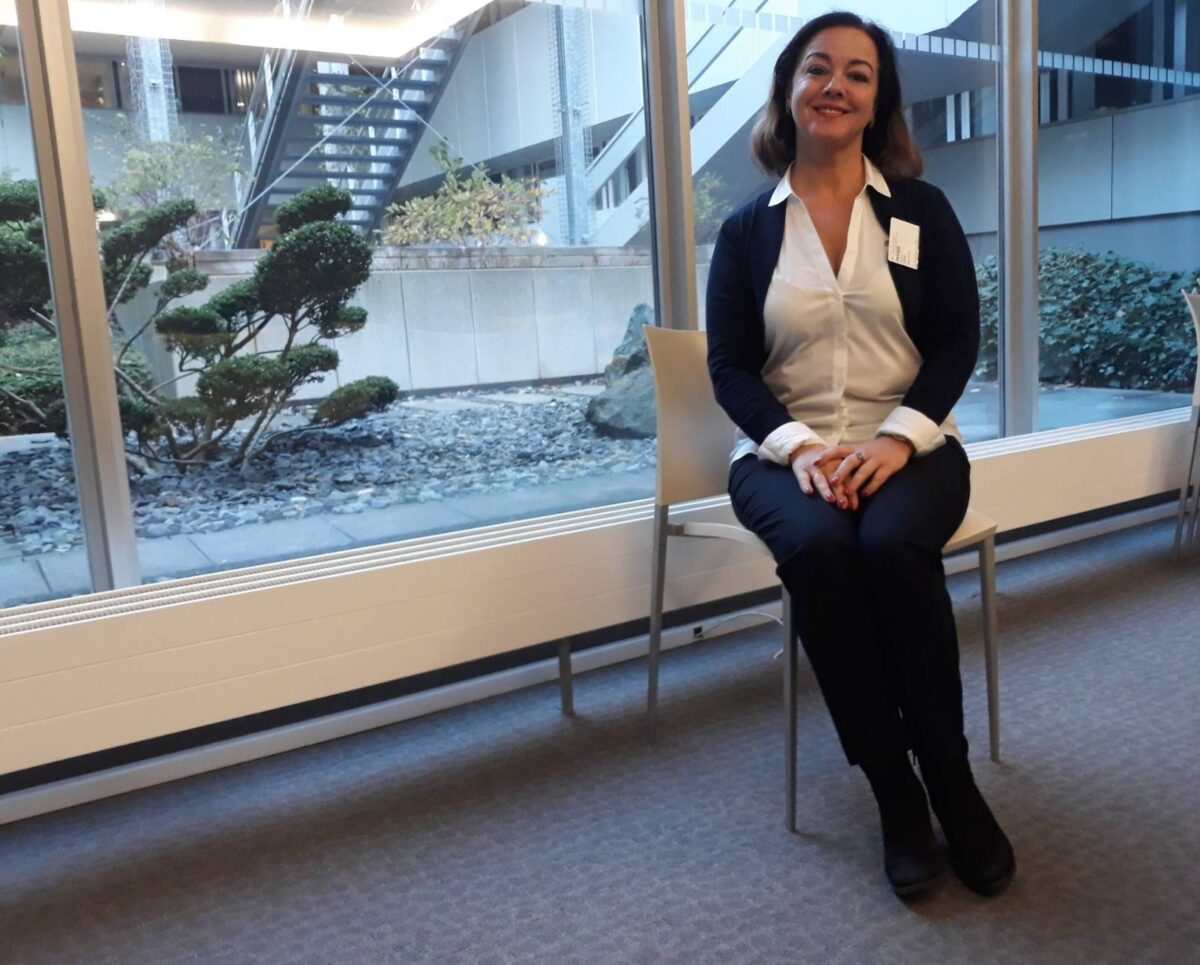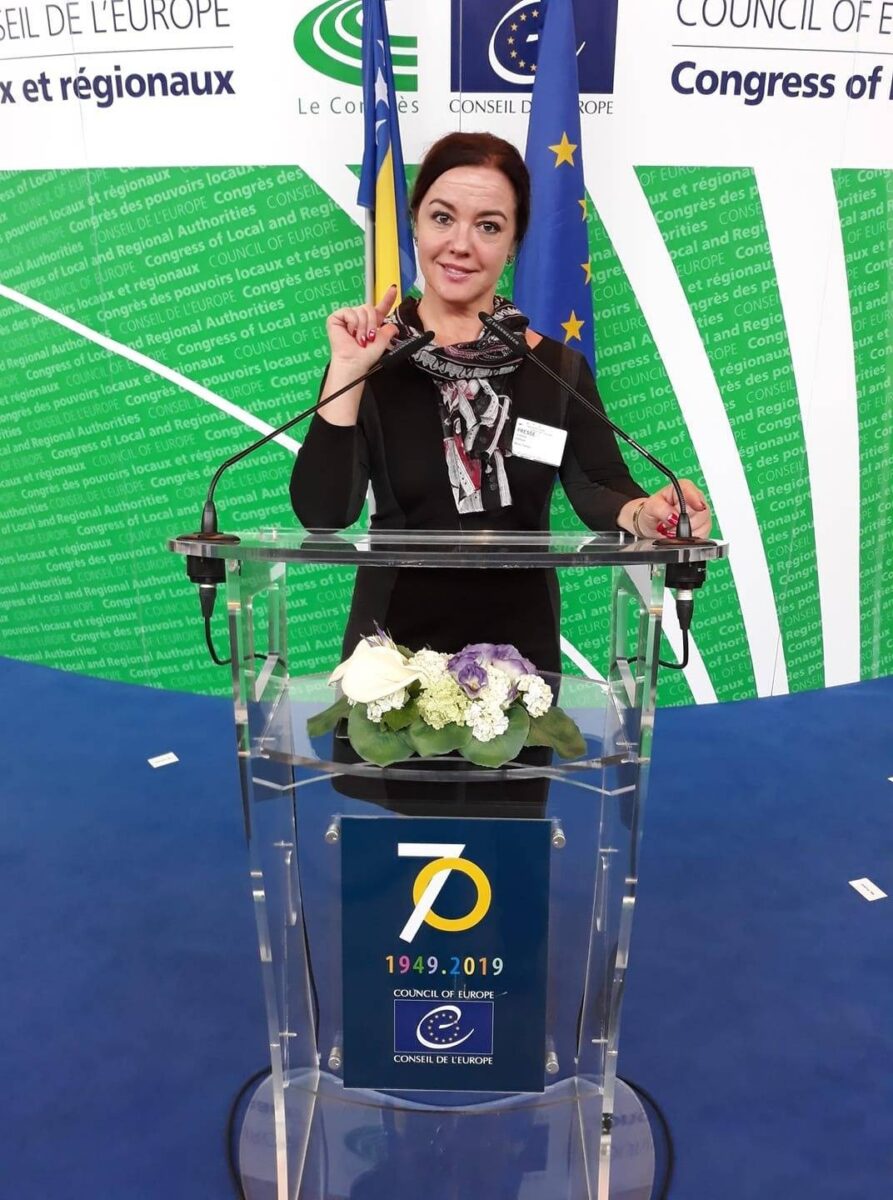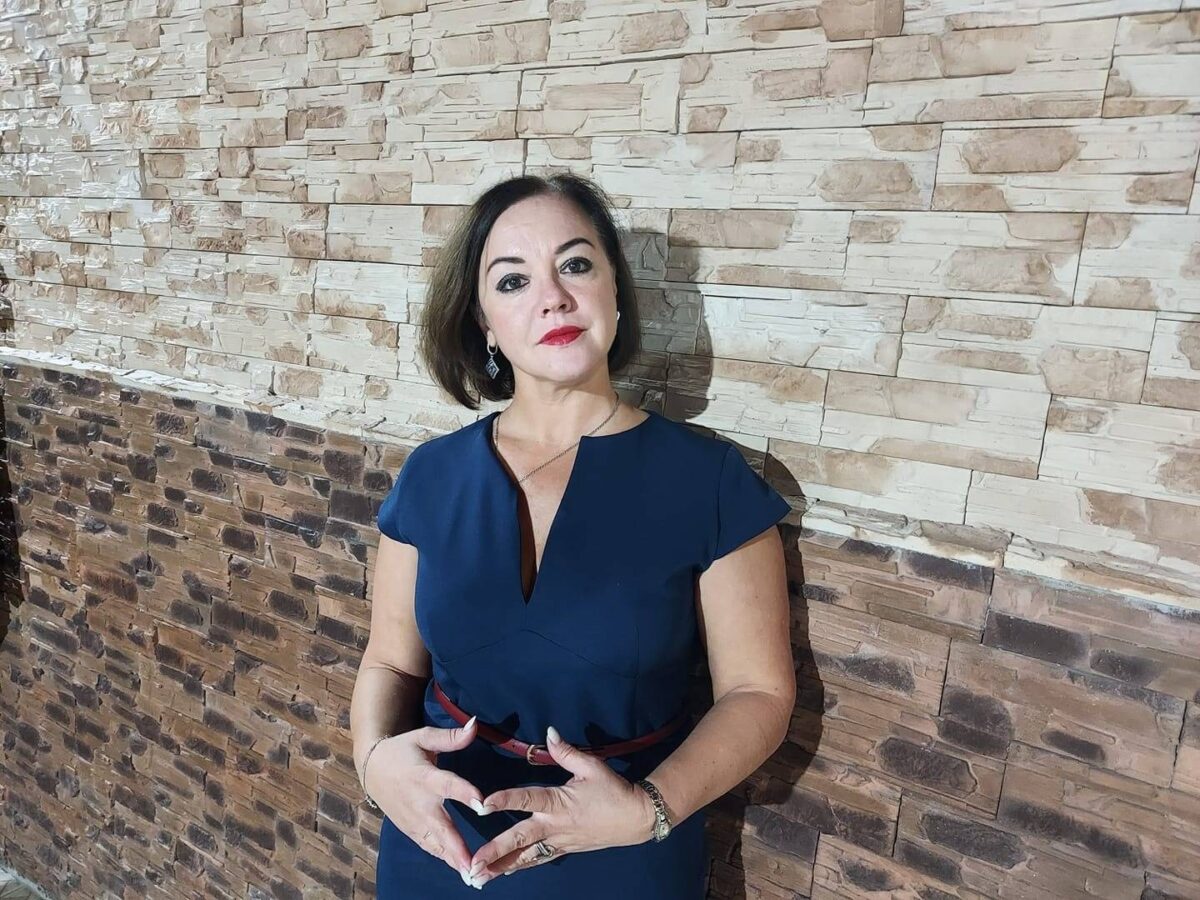
Media-Polesye writes for three cities in the Brest region: Stolin, Luniniec and Pinsk. It’s Editor-in-chief Svetlana Garda talks about what the editorial office had to face, whether they managed to keep the team and how the regional medium is going to work now.
Pressure on Media-Polesye started with COVID-19. On April 6, 2020 we received a warning from the Ministry of Information which broke to us that we were an Internet mass media. We had submitted documents for eight months before that but the institution found reasons to refuse us the mass media status every time.
The reason for the warning, however, was an article on coronavirus in which we stated that a patient had died in hospital based on the information from an ICU nurse where that person was hospitalized and his former colleagues. No official comment was available at the time.
That man recovered, fortunately, even though he told us the intensivists said, ‘Sorry, there’s nothing we can do.’ The man thanked us later for the publication because it was the reason they rushed him into the regional hospital. Around the same time his wife, director of a big supermarket, was hospitalised, too. She received no proper treatment in Luniniec and had to go to a clinic in Minsk where COVID-19 was confirmed. It was the first case of the disease in our city. We interviewed the woman and she told us about how the disease was progressing, how she and her husband were denied treatment…I suppose, these very statements provoked persecution on our web-site.
The court ruled we were guilty and a ‘threat to the country’s national security’. I think they wanted to make us an example for other mass media and make a statement that there is no COVID-19 in the country.

Svetlana Garda
The ‘hearing’ coincided with our employee, Vasily Matskevich’s death due to COVID-19, as we suspected. He was 46. We spoke in the evening, then at night, the ambulance took him and in the morning he was gone. They didn’t include COVID-19 in the diagnosis, of course: pneumonia secondary to comorbidities.
Then there was a hearing because of the article about the presidential candidate Sviatlana Tsikhanouskaya. She was born in Mikaševičy, in the Luniniec region. Our correspondent interviewed those who knew Sviatlana well: her neighbours, classmates, teachers. It was a very nice, kind material.
But after it was published, one teacher applied to the police demanding to deny what she said about Sviatlana Tsikhanouskaya, that she followed her husband like a wife of a Decembrist. It was the reason for a trial.
The third round of court hearings was because of the re-written Radio Svaboda article about the sentences given to the participants of the protest rallies in Pinsk. We could not go to Brest where the hearing took place, but the information was important region-wise so we reprinted it. It cost us a fine of 199 basic amounts out of 200 possible.
As a result of three trials we paid a total of 15,161 Roubles (about USD6,000).
On July 8 of the running year, a search was conducted at my home, at two key employees’ homes and at the editorial office. I was away on holiday at the time, for two weeks. They took my husband right from work, turned everything upside down, seized equipment, an old phone, flash drives. There were Polish pins in a case in my son’s room and there were a lot of questions in that regard—they were all white and red! A sticker with Kastus Kalinouski, which was kept there, too, provoked negativity.
At the office, where our accountant was brought with the keys, they could not remove a hard drive from a computer so they just took it, and the monitor with it, flash drives from photo cameras and even old voice recorders.
Interestingly, our office was in the building across from the KGB, right on the opposite side of the street. And we used to meet the officers. Their chief seemed especially polite: ‘Hello, Svetlana [Anatolievna]’, he used to greet me.
I regret the seized disks and flash drives most of all. They store vast personal archives. I was going to transfer them all to removable disks so many times… It is disgusting when the people suspecting you of terrorism are going through your personal photos, the history of your life, your family. For when is it that we take a photo? In our best moments. With our friends, colleagues. With our parents who are already gone. And now the things I hold dear are in alien hands.
In early September, the Media-Polesye website was blocked. Brest regional prosecutor’s office published the following in this regard:
‘The Prosecutor’s Office established multiple violations of the Law of the Republic of Belarus «On Mass Media» by the Internet mass medium media-polesye.by. Namely, to the best of our knowledge, a number of publications contained photographs and videos from the web-sites whose information was earlier recognized as extremist materials by the court, as well as hyperlinks to such websites.’
Which photographs? Which links? History is silent about that. Yet the thing is we tried and removed everything potentially ‘prohibited’ from our website before that. I suppose, we just got caught in the heat of the crackdown with no justification.

Svetlana Garda
When the post-election repressions started, I received a call from the deputy head of the City Directorate of Internal Affairs summoning me. I said, ‘Summon me properly’. That was the end of a civilized conversation, ‘I’ll come and get you in handcuffs.’ I understood it could not end well.
I left the country, for several weeks as I thought back then. But I have been away from home for several months now. I understand, however, I can do more when I’m safe.
Another lawsuit, the fourth one, was filed against us. It was fabricated because of the article about a drunk gang beating up a taxi driver in Luniniec. According to the taxi driver, the offender (an influential person) was never even taken for examination while he himself had to spend a long time on sick leave due to his injuries. The police officers aka witnesses aka authors of the protocol aka the seeking to bring the publication to justice for ‘distribution of information prohibited for distribution’ consider themselves the victims.
The police have found a good way to meet their plan on fines. Even with our website blocked. So we are now considering the option to liquidate the legal entity to terminate the budget ‘feeder’.
«I’m ready to employ but people are afraid»
Same as other independent media in Belarus, Media-Polesye keeps working via a VPN. Our attendance is down slightly, yet the core audience stayed with us. And we are trying to work at the same pace. Our website is updated regularly, even on weekends. Our social media pages are working well with a total of over 70 thousand followers.
The authorities keep looking for a way to close us completely. But thanks to qualified technical support we keep restoring our work.
Although it is hard to maintain the good spirits of the team and the team itself. We are a regional medium creating local content, writing about the people of Polesye. We used to meet at the office before everything happened and now it’s impossible. So we have to work remotely: part of our team is abroad, part in Belarus.
Remote work is not the hardest thing. Our employees who are in Belarus are constantly in danger. People fear for their families, for their lives, so they are forced to resign. And I understand it.

Svetlana Garda
In August 2020, our photo correspondent was detained at a rally in Pinsk. Moreover, once they found out he worked for Media-Polesye, they beat him. After a while he was detained again, that time he was targeted: people were only starting to gather at the square and our journalist hadn’t even taken out his camera when they took him. He was sentenced to another administrative arrest. The ruling was challenged but later they invited him to the police department under false pretenses and detained. After he was released, the correspondent resigned.
That’s why our team is a small one now. I am ready to employ people but everyone is afraid. No one wants to risk.
Officials used to say we were very useful giving a lot of service information. Police officers themselves—the ones who threatened to come and cuff me—used to ask us to publish this or that… When the crackdown on the national mass media began, we knew our turn would come.
It is hard to get information now. Our correspondent came to a school in Pinsk to take photographs of the ‘last bell’ at the end of the school year and was denied entry. They said, ‘We have nothing for Media-Polesye.’ Getting information is a real hunt now.
But our audience is very grateful and not indifferent! Our readers give us a lot of news topics sending us photo facts. However, they often ask to keep them anonymous. Once we write about a problem, it gets solved. So we are still journalists: we give a platform to ordinary people.
The authorities keep pressure on the regional mass media to keep silent the fact that the regions are not idle. Just recall what rallies took place across the country, in Pinsk in particular.
Regional media are the source of information for the national resources. Portals used to send a team to a region to prepare a material. But that was before. And now there is only information exchange. The country learns about the people and events in regions thanks to us.
Things are much harder for a regional journalist because people know us. We might go to some institution with our personal agenda and everyone gets tense—wouldn’t you write ill about them?
Our correspondent recently wrote about the many bureaucratic hurdles she faced at the utilities service office trying to find a contract she needed. The whole structure is expecting an inspection from a superior institution now and the utilities service damns the journalist uncovering the institutional mess.
Now that we, journalists, not only interview but also are interviewed, we are often asked the question, ‘What now? How to go on? What to do?’
Oksana Dobriyanets, who comes from the same area as I do and whom I met outside Belarus, gave a very precise answer to that question. She said, ‘Take care of your health. We’re going to need it when we start building the new Belarus.’
Terms and conditions
Partial or full reprint is permitted subject to following terms of use.
An active direct hyperlink to the original publication is required. The link must be placed in the header of the reprinted material, in the lead or the first paragraph.
Reprints, whether in full or in part, must not make changes to the text, titles, or copyrighted photographs.
When reprinting materials from this page, attribution must be given to the Press Club Belarus “Press under Pressure” project, collecting evidence of repression against independent media and journalists in Belarus.